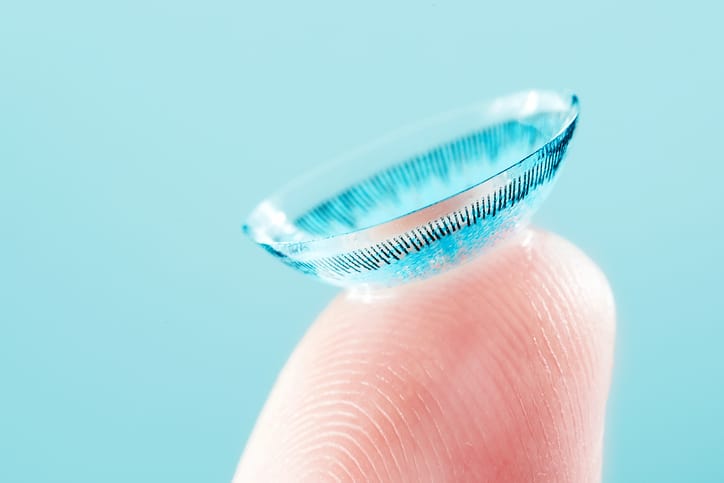Contents:
- Medical Video: Lupus Question: Positive ANA and my rheumatologist visit
- What is anticromatin antibody?
- When do I have to take anticromatin antibodies?
- What should I know before undergoing anticromatin antibodies?
- What should I do before I take anticromatin antibodies?
- What is the anticromatin antibody process?
- What should I do after taking anticromatin antibodies?
- What do the test results mean?
Medical Video: Lupus Question: Positive ANA and my rheumatologist visit
Definition
What is anticromatin antibody?
Anticromatin antibody tests are used to diagnose the presence of Systemic Lupus Erythematosus (SLE).
There are several anticromatin antibodies associated with autoimmune diseases. The nucleosome (NCS) is a significant indication of the presence of an antigen in Systemic Lupus Erythematosus. Anti-nucleosome antibodyes (Anti-NCS, anti-chromatin) have an important role in pathogeny in Lupus Erythematosus. Most sufferers also experience anti-nucleosome antibodies. The presence of anti-NSC antibodies indicates the possibility of kidney damage (such as glomerulonephritis or proteinuria) and Systemic Lupus Erythematosus. Lupus Erythematosus sufferers generally have Anti-NSC autoimmune antibodies compared to Anti-DNA.
Anti-histone antibodies cause as many as 20% - 50% of primary Lupus Erythematosus and 80% - 90% of Lupus Erythematosus caused by drugs. Only less than 20% of antibodies are associated with connective tissue. Anti-histone antibodies can be used specifically to identify people with Lupus Erythematosus caused by drugs such as procainamide, quinidine, penicillamine, hydralzine, methyldopa, isoniazid and acebutolol. There are several types of anti-histone antibodies (AHA). In the case of Lupus Erythematosus caused by drugs, the body produces special AHA (anti-[(H2A-H2B) -DNA] IgG). Other AHAs such as rheumatoid arthritis, rheumatoid arthritis in young people, primary biliary cirrhosis, autoimmune hepatitis and dermatomyositis (inflammation of the muscles) are included in other AHA groups.
When do I have to take anticromatin antibodies?
Anticromatin antibody tests are used to diagnose, analyze and treat Lupus Erythematosus patients, and are useful for showing an increased risk of nephritis caused by Lupus.
Prevention & warning
What should I know before undergoing anticromatin antibodies?
Anti-NCS has a 100% sensitivity level and 97% specificity in the diagnosis of Systematic Lupus Erythematosus. Anti-NSC antibodies are usually closely related to medical conditions.
Anti-chromatin antibodies are not accompanied by ANA (antinuclear antibody), anti-phospholipid antibody or low element.
It is important for you to understand the warnings above before running this test. If you have questions, consult your doctor for further information and instructions.
Process
What should I do before I take anticromatin antibodies?
Things to consider before undergoing the test:
- note the doctor's explanation of the test process
- fasting before the test is not needed
What is the anticromatin antibody process?
The doctor will take a blood sample to store in a tube with a red or yellow lid.
The medical personnel who are in charge of taking your blood will take the following steps:
- wrap an elastic belt around your upper arm to stop the blood flow. This makes the blood vessels under the bond enlarge making it easier to inject needles into the vessels
- clean the part to be injected with alcohol
- inject a needle into a vein. More than one needle may be needed.
- attach the tube to the syringe to fill it with blood
- remove the ties from your arms when taking blood is enough
- attach gauze or cotton to the injected part, after the injection is finished
- put pressure on the part and then put on a bandage
Anti-Chromatin antibodies are identified by enzyme-linked immunosorbent assays (ELISA)
What should I do after taking anticromatin antibodies?
Even though you generally won't feel pain, some people can feel pain when a new needle is injected. But when the needle is inside the vein, the pain usually doesn't feel. Pain depends on the skills of the nurse, the condition of the blood vessels and your sensitivity to pain.
After the blood collection process, you are recommended to bandage with a bandage and lightly press your blood vessels to stop bleeding. You can do your usual activities after the test.
If you have questions about the process of this test, consult your doctor to understand further.
Explanation of Test Results
What do the test results mean?
Normal results:
Anti-Nucleosome antibody:
No detection of antibodies for dilution <1:20.
Antihistone antibody:
- Not detected: <1.0 unit
- No conclusion: 1.0-1.5 units
- Positive: 1.6-2.5 units
- Very positive:> 2.5 units
Abnormal results:
Increased concentration:
- systemic lupus erythematosus
- drug-induced lupus erythematosus
- other autoimmune diseases
Anticromatin antibody test results can vary depending on the laboratory. Consult your doctor if you have questions about the test results.
Hello Health Group does not provide medical advice, diagnosis or treatment.











